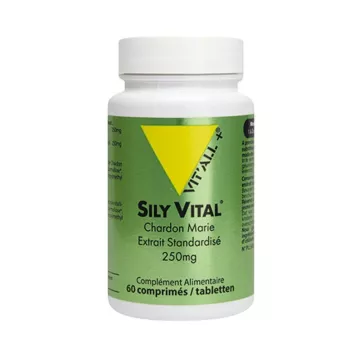
What is liver protection and why is it essential?
Liver protection refers to the preventive and therapeutic measures employed to preserve and improve liver health. As a vital organ, the liver plays a crucial role in many physiological processes, including blood filtration, detoxification of harmful substances, production of bile essential for digestion, and regulation of carbohydrate, lipid and protein metabolism.
Effective liver protection is essential to prevent pathologies such as cirrhosis, hepatitis, and other liver diseases that can occur as a result of risk factors such as alcohol, viral infections, and exposure to certain toxins.
How can I improve my liver protection naturally?
To boost your liver's health naturally, there are several recommended methods:
What are the signs of liver failure?
Symptoms of liver failure may include:
It's crucial to consult a healthcare professional if you suspect liver failure, as it's a medical emergency.
What are the latest advances in liver protection?
Recent research in liver protection focuses on the development of new gene therapies, the use of powerful antioxidants such as polyphenols, and improved antiviral treatments for hepatitis B and C. In addition, artificial intelligence is beginning to be used to personalize liver treatments and predict the risk of liver disease based on a patient's genetic profile and lifestyle habits.
Which drugs are known to affect liver health?
Drugs that can compromise liver health include certain painkillers such as acetaminophen (used in high doses or over a long high doses or over a long period), antibiotics such as amoxicillin-clavulanate, and non-steroidal anti-inflammatory drugs (NSAIDs). In addition, some drugs used to treat psychiatric conditions or cancer can also have hepatotoxic effects. It's essential to discuss any potential risks with your healthcare professional, and to strictly follow dosing recommendations to minimize the risk of liver damage.
How does alcohol affect the liver?
Alcohol is metabolized by the liver and can cause direct damage to liver cells if consumed in large quantities or over a long period of time. Effects include inflammation (alcoholic hepatitis), accumulation of fatty deposits in the liver (hepatic steatosis), fibrosis and, ultimately, cirrhosis, which can be fatal. Reducing alcohol consumption or abstaining completely is crucial to preventing or limiting liver damage.
What role does diet play in preventing liver disease?
A healthy diet plays a key role in preventing liver disease. Diets rich in fruits, vegetables, whole grains and lean proteins, yet low in saturated fats, sugar and salt, can help reduce the risk of non-alcoholic fatty liver disease and other liver disorders. Fiber-rich foods can also help maintain a healthy body weight and regulate blood sugar levels, reducing the burden on the liver.
How is liver disease diagnosed?
Diagnosis of liver disease usually involves a combination of blood tests (liver function tests), medical imaging such as ultrasound or CT-scan, and sometimes a liver biopsy. Liver function tests measure liver enzyme levels, which may be elevated in the presence of liver damage. Medical imaging allows us to observe the structure of the liver and identify abnormalities such as tumors or cirrhosis. A biopsy, although more invasive, can determine the degree of liver damage and help identify the precise nature of liver disease.
What are the treatment options for chronic liver disease?
Treatment options for liver disease vary according to the cause and stage of the disease. They can include lifestyle changes such as diet modification and increased exercise, medications to treat inflammation or infection, and more advanced interventions such as antiviral therapy for viral hepatitis. In cases of advanced cirrhosis or liver failure, liver transplantation may be considered. Proactive management of liver health is essential to prevent worsening of the condition and maintain quality of life.